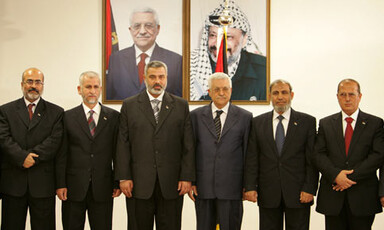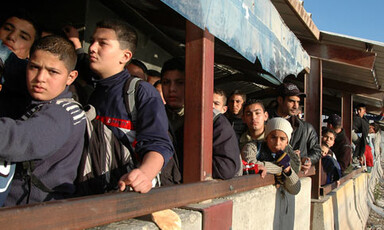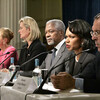
A just peace or no peace
31 March 2006
Do policymakers in Washington and Europe ever feel ashamed of their scandalous double standards? Before and since the Palestinian elections in January, they have continually insisted that Hamas comply with certain demands. They want us to recognise Israel, call off our resistance, and commit ourselves to whatever deals Israel and the Palestinian leadership reached in the past. But we have not heard a single demand of the Israeli parties that took part in this week’s elections, though some advocate the complete removal of the Palestinians from their lands, writes Ismail Haniyeh, the new Palestinian prime minister. Read more about A just peace or no peace








